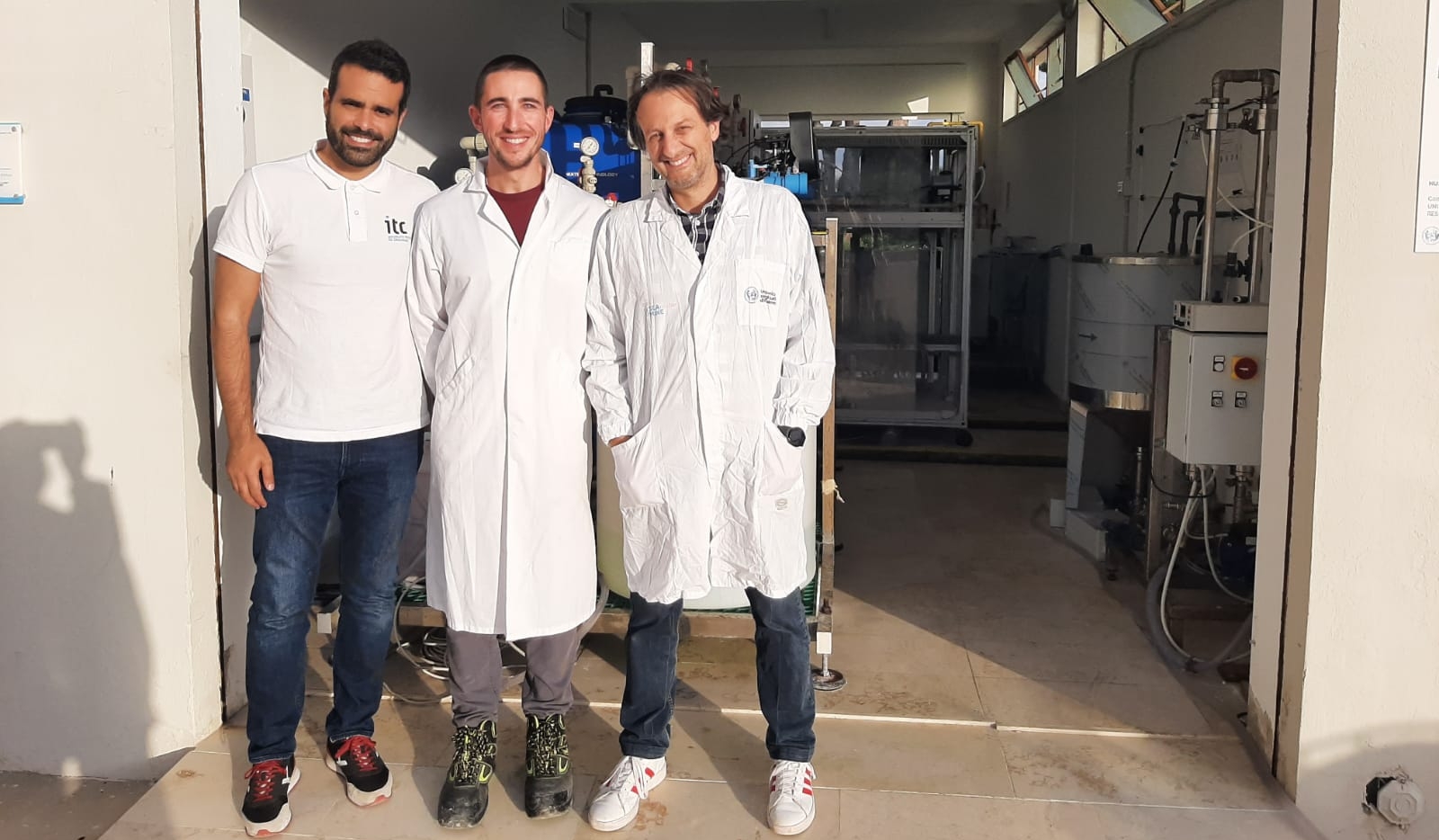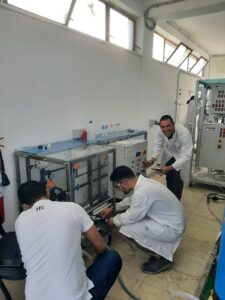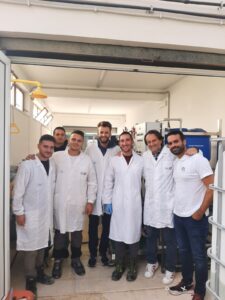Researchers from ITC and UÉvora completes mobility in Palermo
29/11/2024
Frederico Felizardo and Ángel Rivero Falcón participated in a mobility program in Palermo

As part of the Sol2H2O project, researchers and PhD students from the University of Évora and the Technological Institute of the Canary Islands, Frederico Felizardo and Ángel Rivero Falcón, respectively, participated in a two-week mobility program at UNIPA in Palermo, Italy. The mobility took place from November 11 to 22, 2024, providing a valuable opportunity for knowledge exchange and strengthening international collaborations.
Frederico Felizardo, highlighted the significance of this mobility: “Between November 11th and 22nd, 2024, as part of the SOL2H2O project, I carried out research mobility at the University of Palermo (UNIPA) and its spin-off, ResourSeas SrL. Recognized for its expertise in brine valorization, UNIPA provided me with a hands-on experience that complimented my theoretical background, conducted in their laboratory facilities. This training was essential for developing skills in chemical analysis and results interpretation, preparing me for the application of this knowledge in the commissioning of pilot-scale technologies. During the mobility, I participated in the commissioning of a multiple feed-plug flow reactor (MF-PFR), designed by ResourSeas SrL. This equipment will be integrated into the brine valorization and solar desalination prototype, which is currently being implemented at the facilities of the University of Évora. Additionally, I had the opportunity to collaborate with researchers from UNIPA, ResourSeas SrL, and my colleague, Ángel Rivero, from the Canary Islands Technological Institute (ITC), who also participated in the pilot training period. This collaboration took place in the context of a mentoring and knowledge transfer action included in the tasks proposed by the SOL2H2O project, aiming to train candidate young researchers”.
Ángel Rivero Falcón, said: “During my recent visit to Sicily as a researcher from ITC, I had the opportunity to engage with the facilities of the University of Palermo (UNIPA) and its spin-off, ResourSeas, as part of the SOL2H2O project. Together with Frederico Felizardo from the University of Évora, the project coordinator, we explored UNIPA’s groundbreaking advancements in brine valorisation, an area where the university leads globally.
In Trapani, we toured the iconic salt works and commissioned the MF-PFR (multi-feed plug flow reactor) pilot plant, a key technology patented by UNIPA. This innovative system, designed for magnesium recovery from brines, will soon be transported to UÉvora (Portugal) to integrate with the pilot plant under construction there. The facility in UÉvora will combine this technology with a photovoltaic-powered reverse osmosis system provided by ITC and a Membrane Distillation (MD) unit supplied by CIEMAT, another SOL2H2O partner. This collaboration aims to create sustainable and energy-efficient water management solutions.
Additionally, we gained valuable insights into the chemical analyses required for system control and product quality assurance. These detailed protocols are crucial for the efficient operation of the MF-PFR system and the high-quality recovery of valuable resources.
This visit represents a significant step in the SOL2H2O project’s mission to tackle water scarcity and promote circular economy practices in water and brine management across Europe.
The initiative is part of the SOL2H2O project — European Twinning for research in Solar energy to (2) water (H2O) production and treatment technologies, funded by the European Commission through Horizon Europe GA Nr. 101079305. The project is integrated into the DESAL+ Living Lab Platform, a collaborative research and innovation ecosystem focused on advancing desalination technologies and their integration into sustainable water management solutions”.


